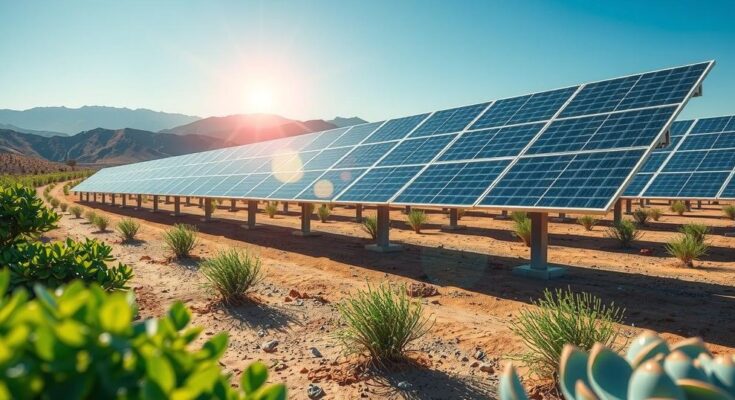The article discusses the critical effects of climate change, particularly droughts, on rural communities in Zambia and the importance of solar-powered water systems. It emphasizes the need for sustainable water infrastructure to combat water scarcity, enhance agricultural productivity, and improve health. The report also highlights the community’s reliance on these systems for better resilience and livelihood improvement amid increasing climate challenges.
Climate change has pervasive global impacts, including increased droughts, flooding, and extreme temperatures, which pose significant challenges for rural communities. These challenges are particularly pronounced for low-income populations with limited resources to adapt. The lack of water during drought severely affects agriculture, leading to poverty and migration, especially for farmers reliant on rain-fed systems. Furthermore, women and children often bear the brunt of water scarcity, facing long treks for clean water, which exacerbates health risks within vulnerable populations.
In Zambia, persistent droughts have impacted access to clean water and agricultural productivity. Rural areas suffer from inadequate water infrastructure, forcing communities to rely on unsafe water sources. This creates health hazards and reduces agricultural outputs. Increasing the efficiency of water management practices is crucial for enhancing climate resilience. The establishment of solar-powered boreholes represents a sustainable approach to improving water access and alleviating the adverse effects of climate challenges.
To effectively combat the adverse effects of climate change in rural Zambia, an integrated approach is necessary, combining community participation, infrastructure development, and sustainable practices. The implementation of solar-powered water systems can significantly enhance resilience against droughts and support improved livelihoods. Adequate water supply not only fosters health and sanitation but is also vital for agricultural resilience and sustainable development in affected communities.
Original Source: reliefweb.int




